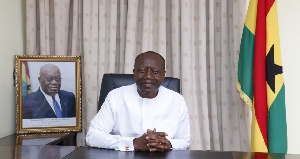As Ghana looks to diversify its sources of foreign exchange, it has aggressive plans to expand its tourism capacity, with an ambitious proposal for coastline development on the table and an expansion of the main international airport under way.
Tourism was one of the big winners in Ghana’s 2017 budget, handed down by the minister of finance, Ken Ofori-Atta, in early March. The Ministry of Tourism, Arts and Culture saw its allocation rise from GHS38.9m ($9.2m) in 2016 to GHS43.9m ($10.4m).
In a speech accompanying the release of the spending plan, Ofori-Atta also outlined plans to increase the private sector’s involvement in the sector.
This engagement is necessary if the country’s economic aims are to be met: Ghana is currently working to reduce a budget deficit equal to 8.7% of GDP, roughly three percentage points higher than the target, which means the state increasingly needs to turn to private investment to fund capital projects in key areas like tourism.
Ghana’s tourism industry is already a key contributor to the national economy, ranking fourth in terms of input, after oil, gold and cocoa. According to the World Travel & Tourism Council (WTTC), the sector directly accounted for around 3% of GDP in 2016, with its total contribution rising to 7.1%, in addition to directly and indirectly employing 5.6% of the workforce.
The council expects Ghana’s tourism industry to expand by 5.6% in 2017 and maintain an annual rate of growth rate of 5.1% through to 2027.
Mega-projects and niche developments
Perhaps the most visible initiative where the state is looking for private sector buy-in is a major redevelopment of sections of Accra’s coastline.
Known as the Marine Drive Tourism Investment Project, the plan involves developing nearly 100 ha of land along the shoreline of Ghana’s capital city between the Osu Castle beach front and the Centre for National Culture.
Among the proposed amenities are hotels, shopping malls, theme parks, an office complex and a casino.
The development was initially proposed by the former government and ratified by the Cabinet last October. It is being overseen by the Ministry of Tourism, Arts and Culture, with projects to be rolled out as public-private partnerships (PPPs) over the course of this year.
According to Ofori-Atta, the initiative is a key part of the current government’s policy, which has a particular focus on growing the business tourism segment.
The push to expand private sector participation is not limited to large projects. Small and medium-sized enterprises (SMEs) operating in the tourism sector also fared well in the new spending plan. Ofori-Atta told Parliament the Ministry of Tourism, Arts and Culture would conduct investment feasibility studies this year on promoting SMEs through PPPs.
Bid to strengthen air links
Ghana is also moving to bolster its transport infrastructure to improve connectivity and increase visitor figures.
Expansion work on a third terminal at Accra’s Kotoka International Airport started in March of last year and is expected to be completed by July, allowing the airport to handle an extra 5m passengers a year, with the capacity to handle up to 1250 passengers an hour.
This would represent a significant increase on the most recent figures from the Ghana Airports Company Limited (GACL), which showed that 2.19m passengers used the airport in 2015, with international travellers accounting for 1.67m of the total. The 45,000-sq-metre terminal – designed for international traffic – will comprise a large retail area, three business lounges and seven air bridges, as well as parking for more than 700 cars, according to the GACL.
In what could be a further boost for the industry, the new government has also announced plans for a flag carrier, utilising a PPP model. Such a move would fill a void dating to 2010, when Ghana International Airlines – the country’s second iteration of a national airline, following the closure of Ghana Airways in 2005 – ceased operations.
If viable, a new airline could be operational by 2019, Abena Dapaah, minister for aviation, said in February. The government has previously announced it will not finance the venture but will request carried interest. Press reports have indicated a number of foreign carriers have expressed interest in bidding for the project, although there has yet to be any official confirmation.
Click to view details



Business News of Tuesday, 25 April 2017
Source: thebftonline.com

















